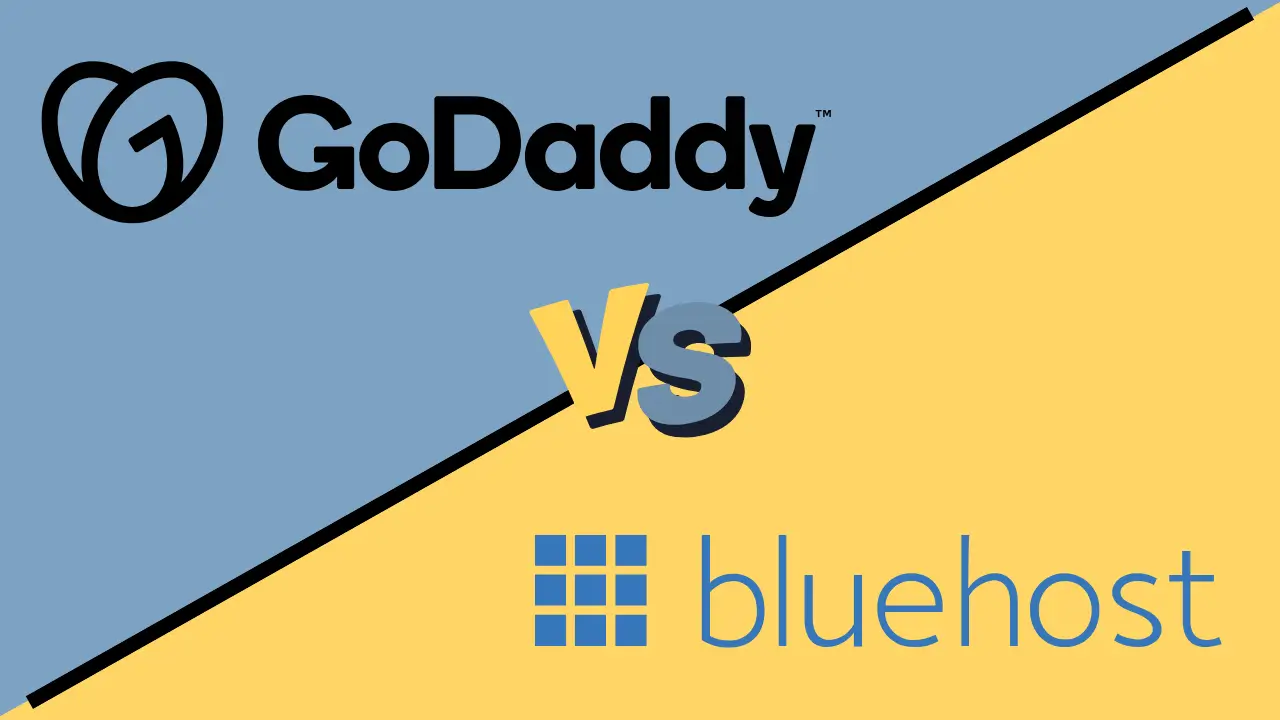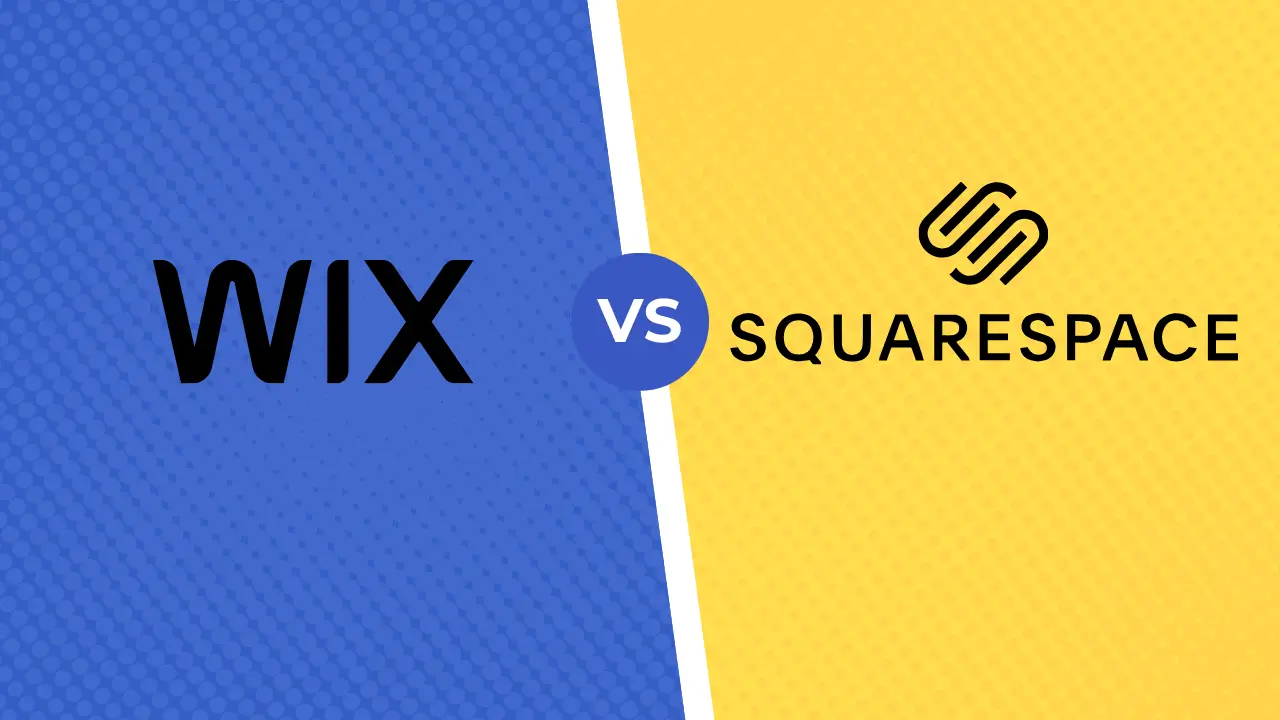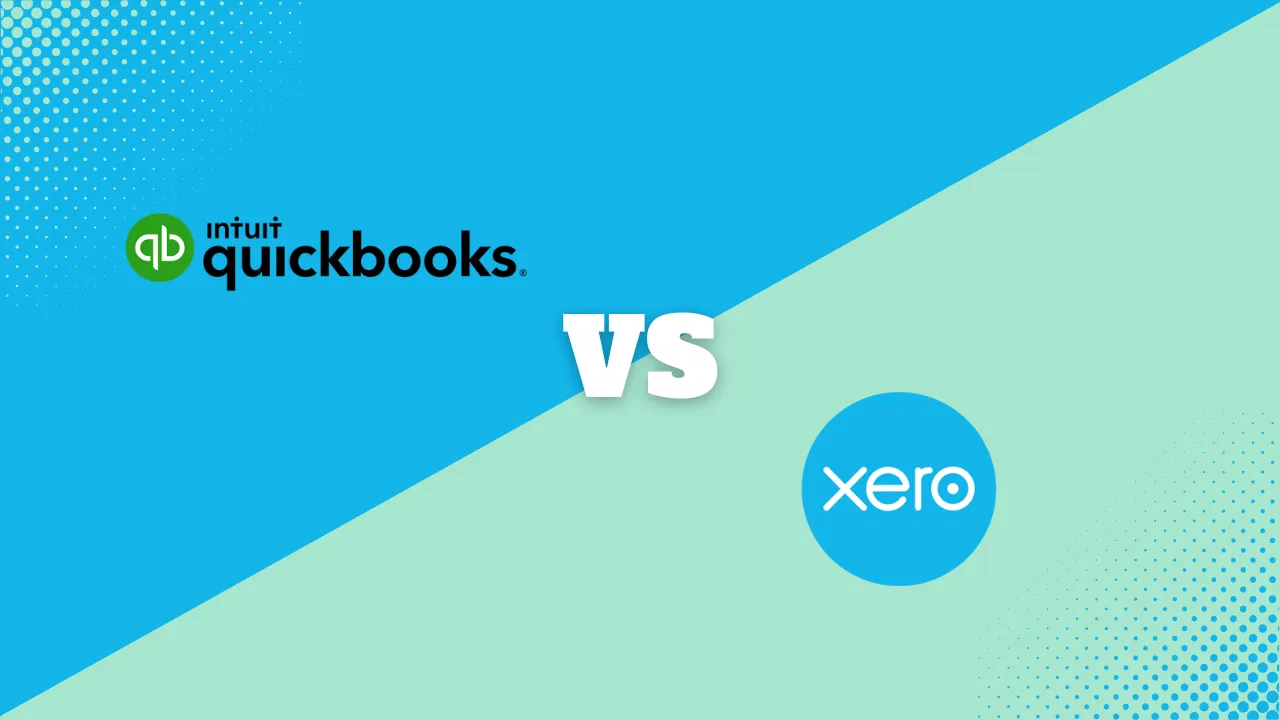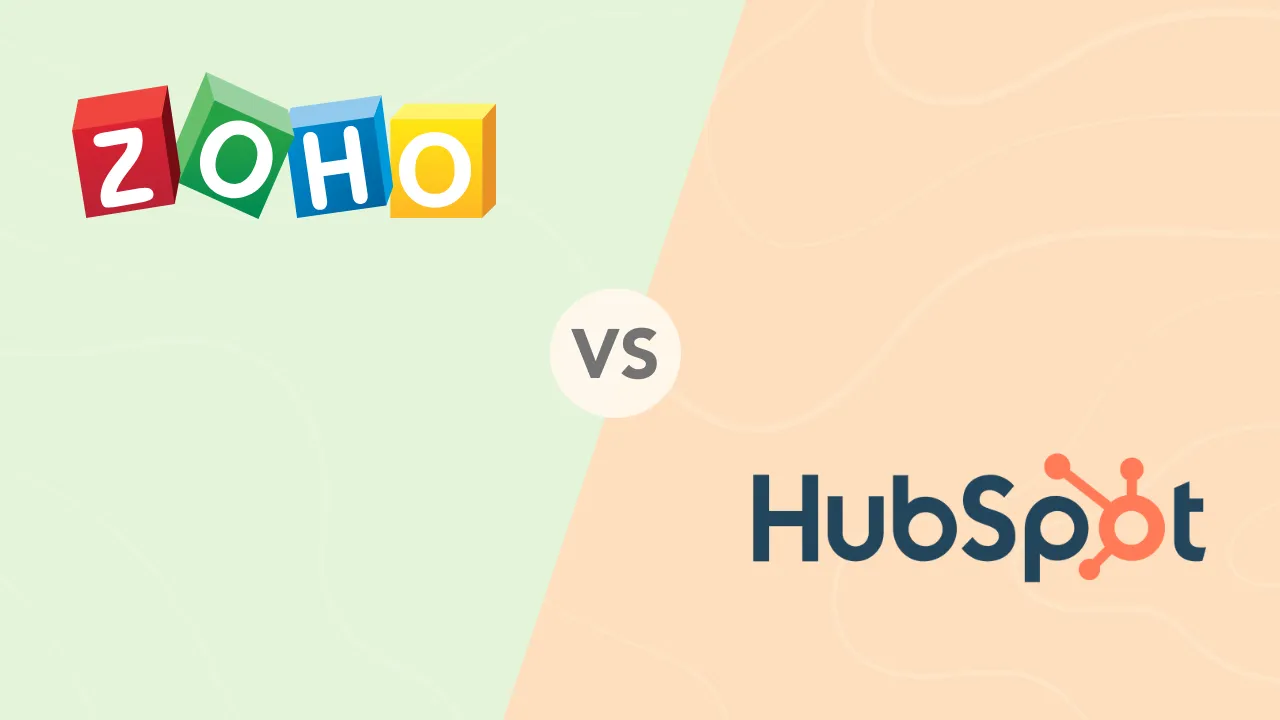Bluehost vs. GoDaddy (2025): Which Hosting Service Is Right for You?

When you’re launching a website – whether for a personal blog, a small business, or a growing e-commerce store — the choice of hosting services can determine your site’s performance, security, costs, and long-term success.
Two of the biggest names people compare are Bluehost versus GoDaddy. While they’re both massive players in web hosting, domain registration, and online services, they’re not identical, and depending on your needs, one will be a better fit.
In this comprehensive guide, we’ll explain how to compare Bluehost to GoDaddy in every critical dimension: hosting performance, website builder tools, e-commerce support, customer service, price, and value.
We’ll also explore the website hosting price comparison, when you might need a Bluehost alternative, and answer common questions many first-time buyers (or even experienced developers) often ask.
Let’s dig deep so you can make a confident, informed choice.

Basic
Pros
- Deep integration with WordPress
- Inexpensive to get started
- Round the clock customer support
Cons
- It’s not as flexible as some of the popular site builders
- The eCommerce store is lacking some advanced functionality

Economy
Pros
- Free SSL certificate when purchasing a hosting plan
- Free domain is also included with hosting plans
- Unlimited storage and unmetered bandwidth on most plans
Cons
- More expensive than comparable web hosting services
- Many instances of the hosting service being slow
Why It’s Important to Compare Bluehost to GoDaddy
Before we dive into comparing Bluehost vs GoDaddy, let’s set the stage.
Your web host matters because it directly affects:
-
Your site’s speed and uptime → critical for SEO and user retention.
-
Your security → protecting your content, user data, and transactions.
-
Your scalability → making sure your site can grow as traffic increases.
-
Your cost efficiency → avoiding hidden fees for essentials like email, SSL, or backups.
-
Your ease of use → depending on whether you’re a beginner, developer, or business owner.
That’s why you don’t want to just pick the biggest name — you want the right fit for your specific needs.
Bluehost vs. GoDaddy Quick Overview
| Feature | Bluehost | GoDaddy |
| Best For | WordPress sites, bloggers, growing businesses | Small businesses, domain-focused users, fast launch |
| Hosting Speed & Uptime | Optimized for WordPress; fast performance | Strong global presence; reliable for general sites |
| Website Builder | WordPress + Bluehost Website Builder | GoDaddy AI Website Builder |
| Website Hosting Price Comparison | Affordable; includes free domain, SSL, email | Slightly pricier; paid email (via Microsoft 365) |
| WordPress Integration | Official WordPress.org recommendation | Decent but less specialized |
| Email Accounts | Free with hosting | Paid separately |
| E-commerce Capabilities | WooCommerce integration (flexible, scalable) | Simple, fast-to-launch online store tools |
| Customer Support | 24/7 chat/phone, WordPress experts | 24/7 chat/phone, broad business expertise |
Hosting Performance: How Do Bluehost and GoDaddy Compare?
No one wants a slow website. Speed affects everything from SEO rankings to user experience and sales conversions. Similarly, if your site is often down, you’re losing traffic and credibility.
Bluehost Performance:
✅ Bluehost is known for its WordPress-optimized infrastructure, including:
-
Built-in caching and free Cloudflare CDN
-
SSD storage for faster load times
-
Automatic updates and resource scaling
Tests consistently show Bluehost delivering 99.98% uptime and excellent WordPress performance, especially in North American and European markets.
GoDaddy Performance:
✅ GoDaddy operates one of the largest global hosting networks, with:
-
Data centers across North America, Europe, and Asia
-
99.97%+ uptime guarantee
-
Decent performance for general websites
However, GoDaddy’s speed on WordPress-specific sites tends to lag slightly behind Bluehost in independent tests, particularly under heavy traffic.
✅ Bluehost → Known for WordPress optimization, SSD storage, free Cloudflare CDN, and 99.98% uptime.
✅ GoDaddy → Global network, 99.97%+ uptime, strong general site performance, especially internationally.
Verdict: Bluehost leads slightly in WordPress; GoDaddy shines for general/global hosting.
Website Builders and Ease of Use: Comparing Bluehost and GoDaddy for Simple Website Creation
If you’re a beginner or a small business owner, you want to launch your site fast without learning code or hiring a developer.
Bluehost Website Builder:
✅ Bluehost focuses on:
-
WordPress: deep integration, thousands of themes, endless flexibility
-
Bluehost Website Builder: a drag-and-drop editor layered over WordPress for easier customization
This gives you power and flexibility, but it can involve a learning curve if you’re totally new.
GoDaddy Website Builder:
✅ GoDaddy shines with:
-
AI-powered site builder: you answer a few questions, and it builds the site for you
-
Mobile-responsive, easy-to-edit templates
-
Ideal for small businesses, local services, or anyone needing to get online today
Verdict:
-
For fast, no-fuss setup, GoDaddy’s builder is easier.
-
For long-term flexibility and growth, Bluehost + WordPress wins.
Related Articles
User Interface (UI) Experience: What It’s Like to Manage a Site on Bluehost vs. GoDaddy
The user interface (UI) is what you interact with daily: the dashboard, menus, settings, and tools. A good UI makes managing your site easy and intuitive; a bad one can leave you frustrated.
Bluehost UI:
✅ Bluehost offers a clean but slightly technical dashboard, especially designed for WordPress users. You can manage domains, email, installs, performance, and security all in one panel — but it leans more toward users familiar with WordPress or those willing to learn.
✅ For beginners, the Bluehost Website Builder adds a friendly drag-and-drop interface that simplifies design without sacrificing WordPress flexibility.
GoDaddy UI:
✅ GoDaddy’s interface is designed for simplicity. Their dashboard guides you through setup, domain management, email, and marketing tools with beginner-friendly layouts and help prompts.
✅ The GoDaddy AI Website Builder takes this further by generating site designs automatically, minimizing manual setup.
Verdict:
-
For total beginners, GoDaddy’s UI is easier.
-
For WordPress users or those wanting more control, Bluehost’s UI offers deeper tools.
cPanel on Bluehost vs GoDaddy’s Custom Dashboard
Beyond the dashboard, the control panel is where you manage hosting-level settings: file access, databases, security, email accounts, DNS, and more.
Bluehost Control Panel:
✅ Bluehost uses cPanel, one of the most widely used and robust hosting control panels.
-
Advanced tools for file management, email, backups, and MySQL databases.
-
Familiar to many developers and freelancers.
-
Direct integration with WordPress tools.
GoDaddy Control Panel:
✅ GoDaddy provides its own custom dashboard plus cPanel access (on most hosting plans).
-
Their custom dashboard simplifies key tasks (domains, billing, marketing) for non-tech users.
-
cPanel is still available for advanced tasks but feels slightly hidden compared to Bluehost.
Verdict:
- For advanced users or developers, Bluehost’s pure cPanel approach is smoother.
- For beginners or business owners, GoDaddy’s custom dashboard simplifies daily tasks.
Security Features: How Bluehost and GoDaddy Protect Your Website
Security is non-negotiable. You need to protect your site from hacks, malware, data breaches, and downtime. Strong security tools should be built into your hosting, not just added later.
Bluehost Security:
✅ Free SSL certificates
✅ Daily backups (paid add-on)
✅ Malware scanning (SiteLock available)
✅ Advanced WordPress security tools (auto-updates, brute force protection)
✅ Spam protection for email
GoDaddy Security:
✅ Free SSL certificates
✅ Daily backups (paid add-on)
✅ Malware scanning and removal (paid add-on)
✅ DDoS protection included
✅ Optional Website Security plans with a firewall and CDN
Verdict:
Both hosts offer similar baseline protections, but GoDaddy includes stronger DDoS protections by default, while Bluehost leans into WordPress-specific security.
WordPress Integration: How Bluehost and GoDaddy Handle WordPress Hosting
With WordPress running over 40% of the web, hosting that’s optimized for it can make a big difference.
Bluehost:
✅ Official WordPress.org recommended host
✅ One-click installs, automatic updates, built-in WP security, and WP expert support
GoDaddy:
✅ Offers WordPress hosting plans but with less specialization
✅ One-click installs and some management tools, but more generalist
Verdict:
-
For serious WordPress users, Bluehost is a clear winner.
-
For casual WordPress sites or general hosting, GoDaddy is fine.
Website Hosting Price Comparison: Real Costs, Not Just Advertised Prices
Many users compare plans only by monthly price, but the real cost comes from what’s included (or not).
| Feature | Bluehost | GoDaddy |
| Domain (1st year) | ✅ Included | ✅ Included |
| SSL Certificate | ✅ Included free | ✅ Included free |
| Email Accounts | ✅ Free business emails | ❌ Paid add-on (via Microsoft 365) |
| Backups | ❌ Paid add-on or manual setup | ❌ Paid add-on or manual setup |
| Pricing (shared hosting) | ~$2.95–$5.45/month (promo rates) | ~$5.99–$12.99/month (promo rates) |
✅ Bluehost: Affordable plans starting ~$2.95–$5.45/month, includes domain, SSL, email.
✅ GoDaddy: Slightly higher at ~$5.99–$12.99/month, domain and SSL included, email extra.
Bottom Line: Bluehost usually offers better value, especially if you need business email.
E-commerce Support: Choosing Between Bluehost and GoDaddy for Online Stores
If you plan to sell products or services online, your hosting must support secure payments, product management, and scalability.
Bluehost:
✅ WooCommerce-ready, with:
-
Dozens of payment gateway integrations
-
Extensive plugin and theme ecosystem
-
Scalable from small shops to large catalogs
GoDaddy:
✅ Simple online store builder, with:
-
Product and service catalogs
-
Integrated payments and shipping tools
-
Best for small, local sellers
✅ Bluehost: WooCommerce integration, great for scalable stores.
✅ GoDaddy: Simple store builder, fast setup, best for small shops.
Customer Support and Service: What Help Can You Expect from Bluehost and GoDaddy?
Good support can save you hours of frustration when things break (and they will!).
| Feature | Bluehost | GoDaddy |
| 24/7 Support | ✅ Live chat, phone, email | ✅ Live chat, phone, email |
| WordPress Experts | ✅ Available | ❌ Less specialized |
| Knowledge Base | ✅ Comprehensive WP + hosting guides | ✅ Strong domain + general guides |
Verdict:
-
For WordPress-specific help, Bluehost is superior.
-
For broader business services and domains, GoDaddy covers more ground.
Final Verdict: Which Is Better — Bluehost or GoDaddy?
When deciding between Bluehost vs GoDaddy, it’s less about which is “better” overall and more about which fits your specific goals and working style.
✅ Choose Bluehost if you want a hosting service designed around WordPress or WooCommerce. It offers strong scalability, built-in domain, SSL, and email services, and a platform you can confidently grow with over time. For bloggers, online stores, or businesses that want flexibility and control, Bluehost delivers excellent value, especially for those comparing Bluehost alternatives but still needing a strong WordPress focus.
✅ Choose GoDaddy if you want a fast, no-fuss website setup with its AI-driven builder, robust domain management tools, and easy integration with Microsoft 365. It’s an excellent match for small businesses or solo entrepreneurs who need bundled marketing tools, simple e-commerce, and a streamlined, all-in-one solution without diving deep into WordPress.
Unique value takeaway:
Bluehost shines for those who value long-term customization and scalability, while GoDaddy appeals to users who prioritize simplicity, speed, and business convenience. The right choice depends on whether you want to build for today or invest in future growth.
Alternatives to Bluehost and GoDaddy
If you’re shopping for a Bluehost alternative or something beyond GoDaddy, consider:
 Rapid speed servers
Rapid speed servers  No max. on domains & websites
No max. on domains & websites  Fast, scalable hosting for any website
Fast, scalable hosting for any website  Free domain for 1 year
Free domain for 1 year  99.99% uptime guarantee
99.99% uptime guarantee  Free SSL certificate
Free SSL certificate  24/7 customer support to keep you online
24/7 customer support to keep you online  Hosting with 99.9% uptime guaranteed
Hosting with 99.9% uptime guaranteed FAQ
1. Why compare Bluehost to GoDaddy for hosting services?
Because they’re the top names in web hosting, but they serve different types of users. Bluehost is stronger for WordPress users and growing businesses, while GoDaddy is better for beginners and small businesses wanting simplicity.
2. Which is faster, Bluehost or GoDaddy?
Bluehost generally performs better for WordPress and content-heavy sites. GoDaddy has reliable speed across general websites but lags slightly on WordPress benchmarks.
3. How does the website hosting price comparison stack up?
Bluehost usually offers better value, especially because it includes free email accounts. GoDaddy tends to cost more if you need full business tools and Microsoft 365 email.
4. What’s a good Bluehost alternative?
If you want a Bluehost alternative, check out SiteGround, WP Engine, or Hostinger. All offer strong performance and support at competitive prices.
5. Which is better for e-commerce hosting services?
Bluehost + WooCommerce is best for advanced or scalable stores. GoDaddy is better for small shops wanting a fast, easy start.
6. Do both include a free domain and SSL?
✅ Yes, both include a free domain (first year) and free SSL certificates.













